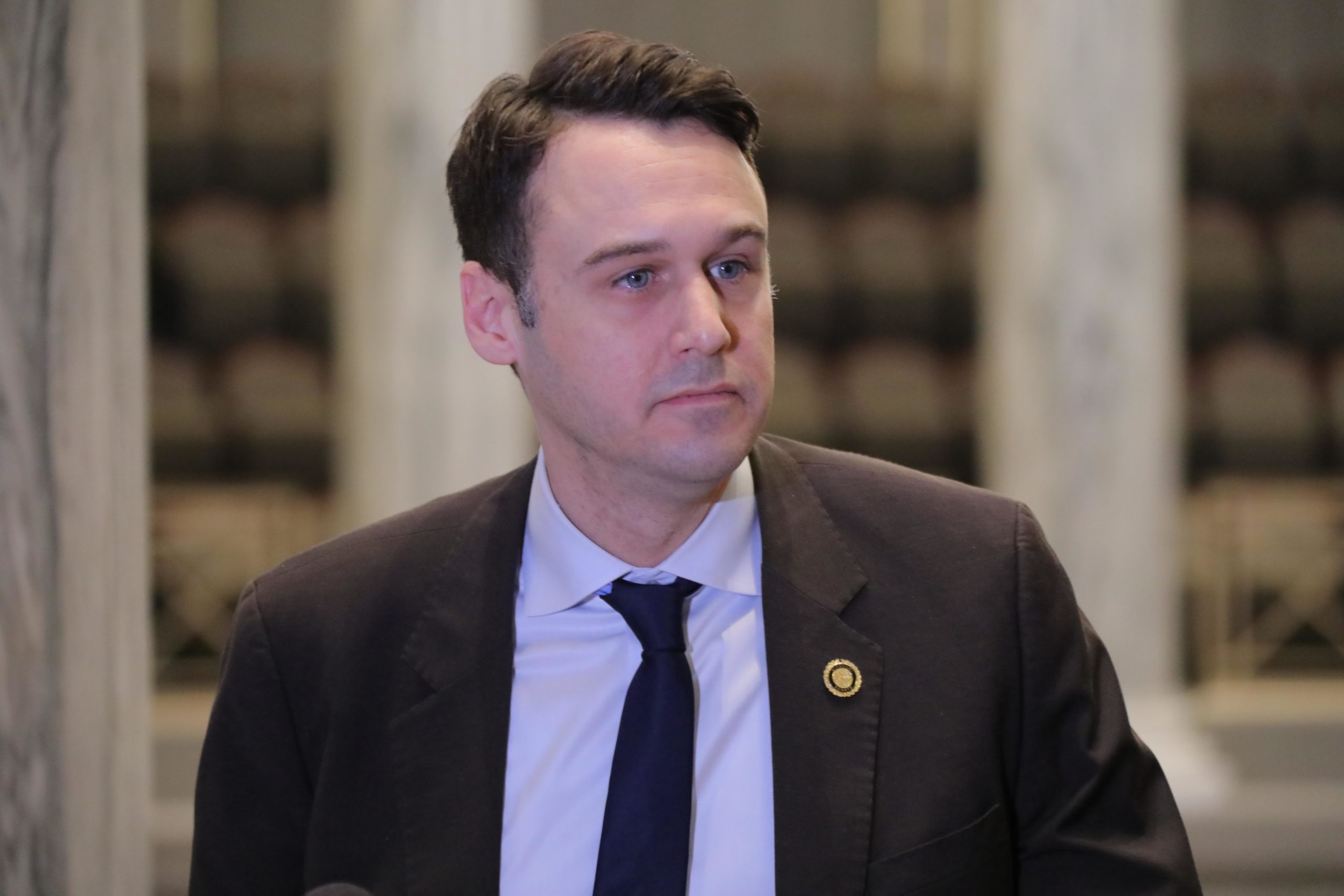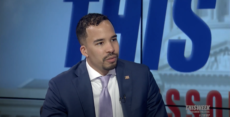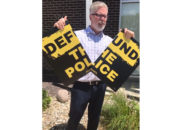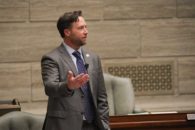While Republicans are scrambling to reboot the special session — and just how to handle the anti-crime legislation — Missouri Democrats, too, seem to be at odds.
Sen. John Rizzo, the minority floor leader, publicly chastised Kansas City Mayor Quinton Lucas in a series of tweets following comments the latter made regarding SB 1, the anti-crime bill originally driving the special session. Rizzo accused Lucas of vacillating on his support for the legislation and said he was awaiting an apology.
“In all my years of public service, I have never seen a mayor throw his allies under the bus as often [and] transparently political as Mayor Quinton Lucas,” Rizzo said. “That is a shame for the families, schools [and] businesses of [Kansas City] who needs a mayor that other leaders trust.”
Mayor Lucas asked Gov. Parson for a special session b4 the gov even committed to it. Mayor Lucas said he needed the witness protection prog. to fight crime. The mayor’s ofc testified in support of SB1. SB1 is a direct result of Mayor Lucas asking for it. Let’s check the receipts:
— J O H N ⚡️ R I Z Z O (@JohnJRizzo) August 12, 2020
Before Gov. Mike Parson officially convened a special session in Jefferson City to tackle violent crime, Lucas did ask the Republican chief executive to call lawmakers to the Capitol. Specifically, Lucas asked for an enhanced witness protection fund and a way to “address how we can provide more tools for law enforcement and prosecutors to interrupt conspiracies to commit murder and other violent acts, particularly offenses committed by felons using deadly weapons.”
The original bill, which appears to have been killed in the lower chamber to be restructured, included a variety of anti-crime components, including creating a witness protection fund and increasing the penalty for illegally transferring a firearm to a minor. But it also included a controversial juvenile certification provision, meaning minors could be tried as adults for certain crimes.
(It did not include any concurrent jurisdiction portion as the governor did not add that to the scope of the special session until after it was already in the House.)
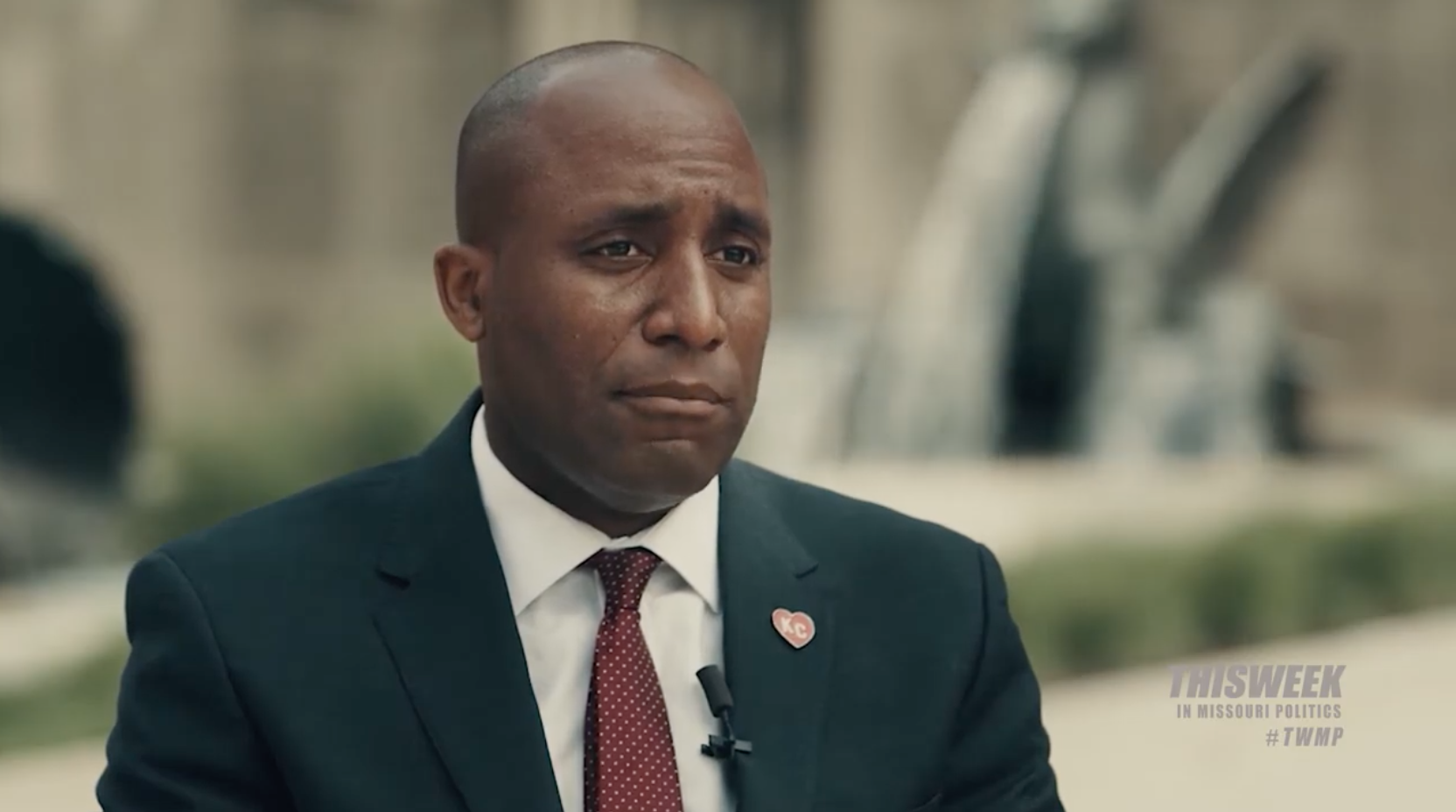
After Parson’s call for a special session, Lucas took to social media to express concerns with several parts of the anti-crime drive. He said “at first blush,” only one out of the six components (witness protection) had his support.
“What I do not support is any proposal that seeks to send children to jail, and I implore our lawmakers in Jefferson City to ensure this provision is not sent to the governor’s desk. I also have shared since July 15 in public forums concerns with other parts of the legislation,” Lucas said in a statement to The Missouri Times. “We as a state must retire the notion that incarceration alone leads to safer communities or true behavioral change. We must refocus our efforts on early intervention, mental health counseling, secure housing, and helping to create optimism for the future. I hope these topics will be discussed in the remaining days of this session.”
“I appreciate my state senators and representatives and the work they do on behalf of Kansas Citians each day. We will continue, I’m sure, to have policy agreements; but I will also continue working with anyone interested in creating a safer, more equitable Kansas City and Missouri.”
SB 1 passed out of the Senate last week in a 27-3 vote despite a 12-hour filibuster the day before. The only three senators to vote against it were Karla May, Jamilah Nasheed, and Brian Williams — all three Black Democrats from St. Louis.
And the fact that the no votes in the upper chamber came from the only Black legislators in the Senate did not go unnoticed. Editorials were penned in both the Kansas City Star (“Missouri Democrats sold out Black colleagues by going along with retro crime bill”) and the Riverfront Times (“White Democrats Betrayed Black Senators on Parson’s Crime Bill”) — the latter of which was shared by May on social media.
It was Lucas’ comments in the Kansas City Star that seemed to grab Rizzo’s attention. In that piece, the mayor said “at least I haven’t tried to throw more 14-year-olds in jail,” a reference to the compromise reached on the juvenile certification language in the upper chamber. He also said he didn’t understand why Democrats voted in favor of the bill.
“Look, hard votes are part of the job. As a Senator, I rely on elected officials in my communities to tell me what they need to tackle their problems. When a mayor asks for a special session, praises the polices put [forward] and has his office testify in support of the bill … I listen,” Rizzo said in a tweet Wednesday.
Sen. Lauren Arthur, a Democrat who represents part of Clay County, declined to comment for this story.

Kaitlyn Schallhorn was the editor in chief of The Missouri Times from 2020-2022. She joined the newspaper in early 2019 after working as a reporter for Fox News in New York City.
Throughout her career, Kaitlyn has covered political campaigns across the U.S., including the 2016 presidential election, and humanitarian aid efforts in Africa and the Middle East.
She is a native of Missouri who studied journalism at Winthrop University in South Carolina. She is also an alumna of the National Journalism Center in Washington, D.C.
Contact Kaitlyn at kaitlyn@themissouritimes.com.

